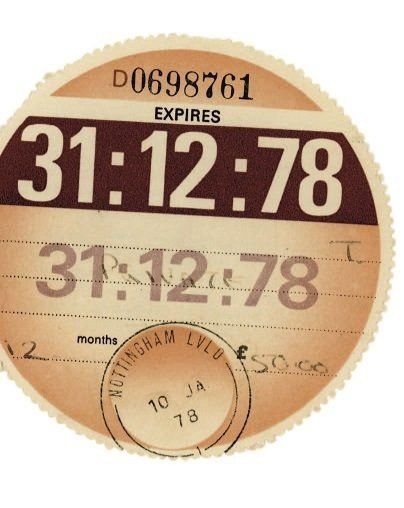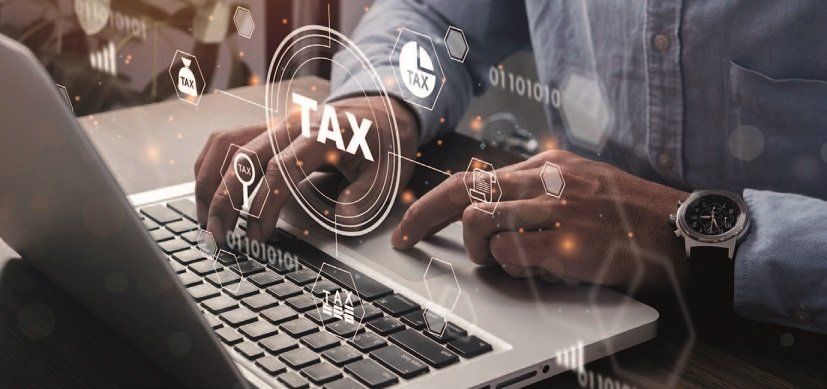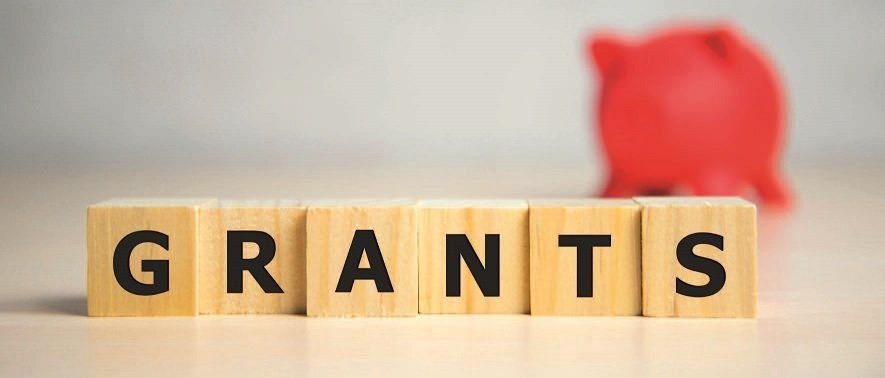Summer Newsletter 2022
Leading Article
Back To The Future?
It is a tough time for both families and businesses, with higher prices and staff shortages causing difficulties that are witnessed every day, from supermarkets to airports. Those under fifty will struggle to remember such difficult economic times, with inflation at a 40-year high.
On 26th May, the Chancellor announced the introduction of several new tax-free payments to families to help them deal with the increased cost of living. These are being partly funded by a windfall tax on the energy companies, even though the Chancellor did not use the term. Many experts feel that further measures will be needed later in the year, unless there is an unexpected reduction in inflation.
The government announced the following payments.
- The Energy Bills Support Scheme will be doubled to a one-off payment to households of £400, which will no longer be repayable (as had been previously announced). This support is additional to the £150 Council Tax rebate for households in England in Council Tax bands A-D, which was announced in February and has already been received by millions of households.
- Individuals on means-tested benefits will receive a tax-free £650 Cost of Living Payment in two instalments, the first from July and a second in the autumn. No claim is needed: this sum will be paid directly into individuals’ bank accounts.
- Pensioner households will receive a one-off extra tax-free £300 Pensioner Cost of Living Payment as a top-up to their annual Winter Fuel Payment.
- In September, a tax-free £150 Disability Cost of Living Payment will be made to individuals who receive certain disability benefits, including the Disability Living Allowance and Attendance Allowance.
The Government is also providing an extra £500 million of local support, via the Household Support Fund, which is being extended from October 2022 to March 2023. The government will issue additional guidance to Local Authorities to ensure support is targeted towards those most in need of support.
Perhaps unsurprisingly, given all the business support schemes from the pandemic, the Chancellor has focussed his support on families rather than businesses, many of which are struggling due to higher energy costs and wages. However, there are many other issues that businesses need to be aware of currently, including imminent changes to National Insurance Contributions thresholds and, in future years, changes in the way that, and frequency with which, unincorporated businesses and landlords must report their profits to HMRC. We discuss these issues and many more in this newsletter.
With a Budget due in the autumn and the possibility of further announcements before then, please get in touch if you need to discuss any tax issues relating to your family or business.
GENERAL TAX
Taxing cryptocurrencies
There is currently no specific law that determines how cryptoassets (bitcoin and similar) and decentralised finance (DeFi) transactions should be taxed, but that doesn’t mean any profit made is tax-free. It is subject to tax either as sundry income or as a capital gain.
HMRC does not consider cryptocurrencies such as Bitcoin to be a form of money or currency, so the special tax rules that apply to holding and lending real money do not apply to any cryptoassets. Where cryptoassets are lent or ‘staked’ (lent to a platform that then lends on to various borrowers), the return provided to the asset owner is not interest, so it is not covered by the tax-free allowances for interest.
HMRC are clear that most dealing in cryptoassets does not amount to a trade, so when a transaction results in a profit, that is a capital gain. Any losses created will be treated as capital losses, which can only be set off against capital gains.
However, there are serious practical issues when trying to apply HMRC’s approach to the thousands of crypto transactions that can be undertaken by one person in a single day.
HMRC expect you to keep the following data points for each crypto transaction:
- the type of cryptoasset
- date of the transaction
- if they were bought or sold
- number of units involved
- value of the transaction in sterling, at the date of the transaction
- cumulative total of the investment units held
- bank statements and wallet addresses, in case these are needed for an enquiry or review.
To calculate the capital gains and losses from your cryptoassets, you need to extract the above data for each individual transaction from the various exchanges and digital wallets you use and compare the buy and sell price for each asset.
If your total net gains from cryptoassets, plus any net gains from other assets, are less than your annual capital gains exempt amount (£12,300), you will not have a CGT liability for the year; however, first you need to calculate what your crypto gains or losses are for each tax year.
If you have been dabbling in cryptoassets, we need to have a serious talk about the taxation of those transactions.
PROPERTY TAX
Registering foreign owned properties
Owning UK property through overseas entities is about to become a far more transparent affair.
Companies, trusts, partnerships and similar entities, which own UK property and are governed by the law of a country outside of the UK, will soon have to register with Companies House in the UK. This includes companies and trusts based in the Channel Islands.
This new ‘Register of Overseas Entities’ will include any overseas entity that has acquired property (commercial or residential) in England or Wales since 1 January 1999, or property in Scotland since December 2014. All disposals of this property made since 28 February 2022 will have to be registered.
The beneficial owners of the overseas entities will have to be identified on the register. These will generally be individuals who hold 25% or more of the shares or voting rights of the overseas entity.
The sanctions for not complying with the register are high, including potentially unlimited fines and a prison sentence of up to five years.
We can help you comply with the requirements of the Register of Overseas Entities should these be applicable to you.
EMPLOYEE TAX
NIC thresholds change in July
National Insurance Contributions (NIC) rates increased for everyone by 1.25 percentage points from 6 April 2022, but the thresholds from which employee NIC are payable are being raised significantly from 6 July 2022 (see table).
This means that most employees will have more NIC deducted from their pay in April to June and more low earners will pay no NIC from July 2022 onwards.
The threshold from which employers must pay Class 1 NIC on their employees’ salaries is not changing, remaining at £9,100 per year (£758 per month) for most employees. Where the employee is an apprentice or aged under 21, the employer is not due to pay class 1 NIC until the employee’s pay exceeds £50,270 per year (£4,189 per month). This also applies for ex-armed services personnel in their first 12 months of civilian employment.
As NIC is paid according to the pay period rather than being cumulative, only nine months of employees’ earnings (from 6 July 2022 to 5 April 2023) will benefit from the higher threshold.
Company directors tend to be paid annually or quarterly. Those on quarterly pay must use the lower primary NIC threshold for the first quarter to 5 July 2022 and the higher primary NIC threshold for the remainder of the year. Directors who pay themselves annually must use a primary threshold of £11,908 for 2022/23.
The Employment Allowance has also increased from £4,000 to £5,000 for 2022/23. This allowance provides relief against employer’s Class 1 NIC. However, it is unavailable in certain circumstances, including where the director is the sole employee of the company.
| Class 1 NIC primary thresholds | 6 April to 5 July 2022 | 6 July 2022 to 5 April 2023 |
|---|---|---|
| Per week | £190 | £242 |
| Per month | £823 | £1,048 |
| Per year | £9,880 | £12,570 |
Self-employed NIC
Most self-employed individuals pay Class 2 NIC (which provides entitlement to state benefits) and Class 4 NIC (which doesn’t). Traders with low profits may only pay Class 2 NIC, which is £163.80 for 2022/23.
The profit levels from which both Class 2 and 4 NIC are payable are being aligned for the first time in the current tax year at £11,908. From 6 April 2023 the starting point for income tax, NIC and the new Health and Social Care Levy, all payable by the self-employed, will be aligned at £12,570.
This is a welcome simplification, but as with all tax there is a hidden complication.
To ensure that those traders who make losses or have low profits are still able to qualify for the state pension and other benefits, they can either get a free Class 2 NI credit or pay voluntary Class 2 NIC, within the bands in the table below.
To be eligible for the Class 2 NIC credit the taxpayer must report profits at least equal to £6,725 on their selfassessment tax return for 2022/23. Those who make lower profits, or a loss, can maintain their NIC contribution record for the year by paying Class 2 NIC on a voluntary basis.
These new rules are relatively complicated. Please contact us if you need to discuss the implications for you.
| Profits in band | Class 2 NIC payable |
|---|---|
| Up to £6,724 | Voluntary at: £163.80 per year |
| £6725 - £11,907 | NI credit given: zero payable |
| £11,908 or more | Compulsory payment: £163.80 per year |
Employee benefits and expenses
Expenses and benefits provided to employees in the tax year to 5 April 2022 need to be reported to HMRC on a form P11D (or online equivalent) by 6 July 2022.
HMRC has been discouraging employers from using paper P11D forms for some time and in recent years it has provided an interactive PDF form for submitting the information online. However, this PDF form has previously led to numerous problems, so this year HMRC has scrapped that method of submitting the P11D.
In 2022 you will have to use HMRC’s PAYE Online for Employers service (for up to 500 employees), use commercial payroll software or revert to paper P11D forms. This could come as a shock if you don’t use the PAYE Online Service for your payroll.
Instead, it may be worthwhile ‘payrolling’ any regular employee benefits. This means you add the cash equivalent of the benefit to the employee’s pay and the employee is charged tax, but not NIC, on that amount. You still need to work out the class 1A NIC on the value of the benefit and pay that over after the end of the tax year.
In order to payroll benefits, you need to apply to HMRC online in advance of the start of the tax year for which payrolling is to apply, so this may be something to consider for 2023/24 if you do not payroll benefits at the moment.
‘Trivial’ benefits for directors
As a company director it very important to keep your personal money and the company’s money completely separate. If you use the company’s funds to pay your personal bills, that is treated as a loan to you for tax purposes.
If you use the company’s debit card to buy personal items, the value of those purchases should be credited to your director’s loan account, but there are exceptions.
You can treat small value items as unsolicited tax-free gifts from the company to you, if the purchase meets all four of the following conditions (of which the third and fourth should be particularly noted):
- It cost no more than £50 (VAT-inclusive);
- It’s not cash or a cash voucher;
- You are not entitled to receive the item as part of any contractual obligation; and
- It isn’t provided in recognition of any particular services you perform for the company.
You can only receive up to £300 worth of items as tax-free gifts per tax year, a total which also covers gifts the company makes to your family members.
However, the £300 cap doesn’t have to be spread equally across the tax year; a range of individual items purchased in, say, December and January totalling £300 would qualify as tax-free, as long as each item cost less than £50 and the cap is not exceeded for the tax year.
BUSINESS TAX
Helping your employees
The cost of living crisis is hitting everyone, including small businesses. You are required to raise the wage rates of employees on the National Minimum Wage by 6.6% for pay periods starting from 1 April 2022, but some employees may still be struggling to make ends meet.
Here are a few things your business could do to help those employees; these ideas are all tax-free for the individual, except for the small benefit charge on electric cars.
Eat for free
You can provide free or subsidised meals to your employees at your premises. As long as the food is provided equally to all your employees, or all those working at a particular site, there is no taxable benefit for the workers.
Bus to work
Providing free or subsidised transport for employees to get to work can help those who struggle to pay for fuel for their cars. A works bus that transports your employees (and their children if required) to and from work can be used for the full journey, or part of it when employees are collected from a pick-up point. The vehicle must be designed to carry at least nine passengers, and the service must be available generally to any of your employees.
Alternatively, your business could work with the local authority to subsidise a key bus route for your workers to get to and from work.
Electric vehicles
An employee can use a company electric van for any private or business journeys, with zero taxable benefit.
Electric company cars are taxable on the employee, based on 2% of the list price of the vehicle. However, that benefit also covers the cost of the insurance, servicing and repairs the company incurs in respect of the vehicle.
Providing electric charging points at work so that employees can charge their own or company vehicles is also a tax-free benefit.
Small loans
Many employers will provide a season ticket loan to help employees pay in advance for their commuting costs, but such interest-free loans (up to £10,000) can be provided for any reason. The loan must be repayable, and a loan agreement should be drawn-up.
Small gifts
Just as directors can receive tax-free gifts worth up to £50 from their company (see ‘Trivial’ benefits for directors ), so can employees. Buying a school uniform for a worker’s child, or surprising them with a food hamper on their birthday, may make a big difference to the family. The £300 annual cap only applies to directors and their family members, not other employees.
Preparing for MTD for income tax
Self-employed individuals need to start thinking about how to prepare for the six reports per year they will need to submit to HMRC under the MTD for Income Tax Self-Assessment (MTD ITSA) regime.
Most sole traders and landlords (not partnerships or companies) will need to comply with MTD ITSA from 6 April 2024. This may seem a long way in the future, but there is a lot to do before then.
If your annual self-employed turnover, plus any rental income you receive, exceeds £10,000 per year, you will have to comply with the MTD ITSA regulations. Where you jointly own a let property, your share of the gross income must be added to your other trading income to compare the total against the £10,000 threshold.
The MTD ITSA rules require you to keep your business records in a digital format. That can be on a simple spreadsheet, or by using more complex accounting software, if appropriate to your business.
You will need MTD-compatible software to submit a report of your trading income and expenses to HMRC every three months as a ‘quarterly update’, which is due within one month of the end of the quarter.
Once the quarterly updates have been submitted for the year, that information is summarised and adjusted for any disallowable items, on an End of Period Statement (EOPS). This is the replacement for the self-employed and property sections in your annual tax return. You will need to submit a separate EOPS for each trading or property business you have.
Finally, your ‘finalisation statement’ for the year will include any other income, gains or claims you need to report to HMRC. This acts as the replacement for your current self assessment tax return.
The first step in this process is to get your business records into a digital format. Let’s talk about that, as soon as possible.
MTD for VAT sign-up
MTD for VAT is now compulsory for all VAT-registered businesses from their first VAT period that starts on or after 1 April 2022. There are two vital steps to take before the transition to MTD can be completed for those not already using MTD.
Firstly, find MTD-compatible software you are happy with. This can be as simple as bridging software that reads your VAT data from a spreadsheet. Alternatively, you may want an accounting software package that is capable of doing more, for example submitting MTD ITSA (see Preparing for MTD for income tax ) reports, which become compulsory from April 2024.
Secondly, identify the right date to sign-up for MTD for VAT with HMRC. The timing of this step is important.
If you sign up too early you may have to rush to submit your VAT return using your new MTD-compatible software earlier than you’ve prepared for. Also, there is a risk that your VAT payment could go missing from your last non-MTD return, if you switch to MTD before the direct debit payment has been taken.
It you are too late in signing up for MTD for VAT, you may not be able to submit your last VAT return at all, as the old VAT portal could be closed.
The ideal date to sign up to MTD for VAT depends on your VAT periods (see table) and whether you pay the VAT due by direct debit or not. In all cases, submit your final non-MTD VAT return before signing up to MTD for VAT.
| Periods starting | Pay by direct debit Sign up between: | Pay by bank transfer Sign up between: |
|---|---|---|
| 1 April | 13 May and 31 July 2022 | 8 May and 4 August 2022 |
| 1 May | 13 June and 31 August 2022 | 8 June and 4 September 2022 |
| 1 June | 13 July and 30 September 2022 | 8 July and 4 October 2022 |
Reporting COVID grants
COVID grants provided to businesses from the furlough scheme, the self-employed scheme or Eat Out to Help Out are taxable. They need to be declared on the business’s corporation tax or income tax self-assessment return.
The grants paid out by HMRC need to be declared as the amounts actually received in the accounting period covered by the return, irrespective of the dates for which the grant was claimed.
If the HMRC computer cannot match the reported figure of grants on the tax return to the amount paid out to the business, it will issue a letter asking for an explanation.
Where you have received such a letter you need to either:
- submit an amended return that includes any omitted grant income; or
- confirm that all the grant income has been included as part of reported income on the return.
We can help you with this by compiling a reconciliation statement comparing the grants received to the figures in your accounts and tax return.
Delays for VAT groups
Setting up a VAT group can help to reduce administration costs, as transactions between the companies within the group are VAT-free and a single VAT return can be submitted for the whole group.
However, HMRC has been taking months to react to requests to set-up, amend, or delete a VAT group. This leaves those companies that want to be part of the VAT group, or which wish to leave it, in VAT limbo.
If your company is affected, you should assume the VAT group registration or change has taken effect from the day the request was submitted electronically, or from the nominated date if that is different. The representative member of the VAT group should incorporate the VAT figures from any new joiners into the group’s VAT return from that date.
The company that is trying to join the VAT group may receive alarming letters or assessments from HMRC, but any penalties or assessments should be cancelled when the VAT group registration is amended.
Please let us know when any such HMRC letter arrives. We can then ensure that HMRC are aware that a VAT group application is in progress and collection of any apparent outstanding estimated VAT debts should not proceed.
This newsletter is written for the benefit of our clients. Further Advice should be obtained before any action is taken.







